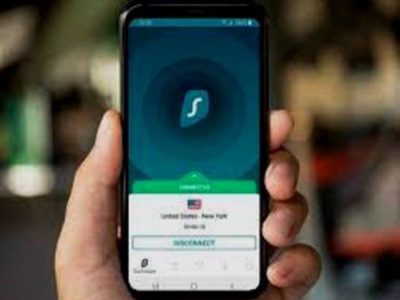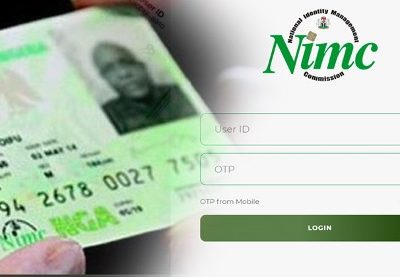By Nwakaego Alajemba
Beware!
The Nigerian Communications Commission (NCC) has drawn the attention of the public, especially telecoms consumers, to a fraudulent and cloned Facebook profile account opened with a name similar to the commission’s official name on the social media site.
Also, the telecoms regulator has formally notified Fcaebook, the social media giant, of the cloned, impostor account with the name “NIGERIA COMMUNICATION COMMISSION OFFICIAL WEBSITE.”
The NCC “deems it fit to inform members of the public that this account is fake and fraudulent. From our findings, the fake Facebook group account was created a year ago and has since amassed followership who, the commission believes, must have inadvertently signed on to the site,” said the commission’s Director, Public Affairs, Dr. Ikechukwu Adinde, in an official statement.
The statement adds: “The NCC states that this is a typical case of profile cloning, which represents a severe security issue in social media networks. It is often used to create a fake profile identical to an original one, for the purpose of misleading the unsuspecting general public.
“For the avoidance of doubt, the official and authentic Facebook account of the commission is: “NIGERIAN COMMUNICATIONS COMMISSION” with over 181,580 followers. The commission strongly advises Nigerian citizens and all telecom consumers to beware of this fraudulent Facebook account as the NCC has no affiliation with it;. It is what it is: A CLONED FACEBOOK ACCOUNT meant to deceive and defraud unsuspecting members of the public.“
Cloning menace
With over 2.7 billion monthly active users as of the second quarter of 2020, Facebook is the biggest social network worldwide. Of all the accounts associated with those users, a portion of them are clones.
Facebook cloning occurs when the original identity of a user is stolen or copied and then passed off as the original. The impostor makes a copy of the original account; takes publicly available info, such as the name and photos of the original user and recreate it.
Not many people are immediately aware of a Facebook clone, also known as a cloning scam as in most cases, the cloned account will use the same name (or a close version) and send friend requests to the targeted person’s friends.
Facebook cloning is cyberattack
Facebook cloning is now regarded as a new kind of cyberattack. Coinciding with the increasingly popular use of smart phones, laptops, and tablets, social media has quickly become one of the most favored forms of direct communication for both professional and personal use due to its fast-paced nature.
According to the Florida Center for Cybersecurity, social media cloning which also include Facebook scam, directly results from the rise of social media as one of the most favored forms of direct communication for both professional and personal use due to its fast-paced nature.
The centre notes: “The unfortunate reality is: the rise of social media, while both useful and entertaining, has also given cybercriminals an easy way to target unsuspecting victims.
“Social engineering, a form of cyberattack that works by exploiting human psychology instead of using technical hacking techniques, has become a popular method for cybercriminals who utilize social media in their criminal activities. Rather than using malware to target a victim, a social engineer manipulates the victim into sharing their personal information by
disguising themselves as a trusted source.
“Facebook cloning is a new kind of social engineering attack that is particularly dangerous because it does not require the scammer to have technical skills, and anyone with insufficient privacy settings is at risk of becoming a victim.
How to report a Facebook impostor
Facebook has measures to stop cloned pages. “Accounts and Pages that impersonate other people go against our Community Standards and aren’t allowed on Facebook. If you see an account that’s pretending to be you, someone you know or a public figure (example: celebrity, politician), we encourage you to let us know. You can report potentially impersonating accounts to us even if you don’t have a Facebook account,” states the social media giant in its page on How do I report a Facebook account or Page that’s pretending to be me or someone else?
You could also access the resource in the page: Report an Impostor Account. To report someone who’s pretending to be you or someone else, first determine if you’re reporting a profile or a Page.How to report a profile or PageIf you have a Facebook account and want to report a profile or Page:
- Go to the profile or Page of the impersonating account.
- If you can’t find it, try searching for the name used on the profile or Page or asking your friends if they can send you a link to it.
- Click
below the cover photo.
- If you’re reporting a Page, select Find Support or Report Page. If you’re reporting a profile, select Find Support or Report Profile.
- Follow the on-screen instructions for impersonation to file a report.
You can report an impersonating Facebook account by filling out a form.Note: You can also report impersonating accounts in Messenger. Learn how to report someone that’s pretending to be you or someone else in Messenger.
- Links used for this report: Facebook Cloning: A New Kind of Cyberattack; Privacy Tip of the Week: Look Out For Facebook Cloning; Facebook clone (cloning scam)































